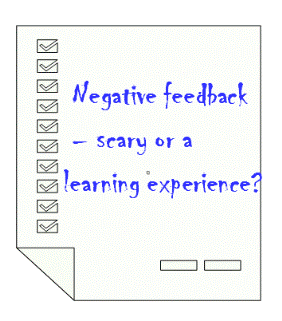Someone has posted something negative on your blog. You’ve decided to keep their comment live on the blog, so now you need to answer the comment with one of your own.
You could:
- be negative or even abusive back
- ignore the negative aspects of their comment
- be upset and cry ‘unfair’
- be extremely humble and apologetic
- agree to disagree
- agree with them in parts
- agree with them and indicate how you will deal with the issue
So which is the best option?
Well, attacking back isn’t a good idea – it may help you feel better immediately, but it is unprofessional and will be remembered more than the original comment. It also doesn’t solve anything.
Ignoring the negative bits. If the comment is mostly ok and just has some negative bit, you may be able to just answer the main part of the comment and get away with it. But ignoring the negative part looks like you are avoiding it, doesn’t make the commenter feel heard, doesn’t help your business grow and doesn’t stop people believing the negative comment.
You may well feel upset by something in a comment, but posting in that way doesn’t look professional or constructive.
Humble is good and an apology where warranted is a must, but don’t go overboard with it. Being too apologetic and humble removes your credibility and is unlikely to earn you more clients. A simple “I’m sorry you feel that way,” “Sorry – I made a mistake” or “I think I mucked that up – let me try again” is usually enough.
If the comment is just negative because they disagree with you – that’s great! It is an opportunity for discussion (and isn’t that what a blog is for?) and for you to learn. You may never agree with the comment, but reading it and considering it may give you a new perspective.
A response that acknowledges the others person’s opinion shows respect and an open mind – it doesn’t mean you have to lie and agree with everything they write, just be polite and find a positive aspect to their opinion. You can respond with comments such as
- “I can see where you are coming from but I still like my logo”
- “That’s an interesting idea. Personally, I don’t like pumpkin but it would add great colour to the dish”
- “I prefer brand X but it’s good to hear how it has worked for other people”
- “You are probably right about the rules, but I still think this is safer”
- “Mary thinks long domain names are great, I prefer short ones – what do you think?”
- “I agree that Christmas preparations can start in July but I don’t like decorations in shops in October”
- “I had never thought about it like that before.”
- “I think you’re right – that article is too long. But it would be incomplete if I cut out the examples”
If the negative comment is actually constructive feedback, the best thing you can do is act on it. You may give an initial response in your blog thanking them for their feedback and noting that you are looking into the issue – and don’t forget to come back and post about the fix once it is in place. This is a powerful process. You will show you are listening to your readers/clients, you respect their opinions and you will admit mistakes in order to improve your service/products. The person making the comment will appreciate being heard and may turn into a supporter; other readers will admire and remember your willingness to change.
So the best option to respond to a negative comment partially depends on the nature of the comment. But always respond with respect in a polite way and acknowledge their point of view. Agree, disagree or make amends as the situation calls for.
Consider negative comments as a way of showing your professionalism and building true relationships with your blog readers and clients, and the comments won’t seem so difficult or painful anymore.




Recent Comments